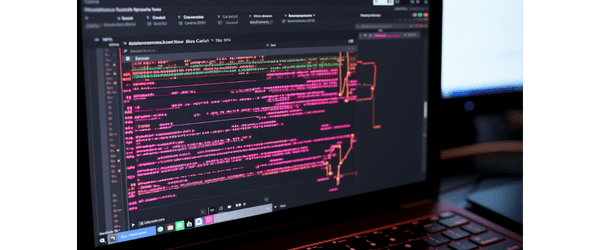Are you struggling to convert bytes to strings in Solidity? Look no further! In this article, we will guide you step-by-step on how to conquer this challenge.
Understanding the difference between bytes and strings is crucial, and we’ll delve into the nitty-gritty details. By the end, you’ll have a clear understanding of the best practices and troubleshooting tips for seamless byte-to-string conversion.
Get ready to dive into the world of Solidity and unlock the power of bytes and strings!
1. Key Takeaways
- Utilize bytes32 data type and abi.encodePacked function for byte to string conversion in Solidity
- Understanding the difference between bytes and strings in Solidity is crucial for seamless conversion
- Consider using libraries like Strings for efficient string concatenation
- Avoid using built-in bytes type for better performance; use bytes32 or bytes16 if possible
2. Overview of Converting Bytes to Strings in Solidity
To convert bytes to strings in Solidity, you’ll need to utilize the bytes32 data type and the abi.encodePacked function.
When handling special characters in byte to string conversion, it’s important to consider the encoding format of the characters. Solidity uses UTF-8 encoding, so make sure to handle any special characters accordingly.
Additionally, performance considerations should be taken into account, as converting bytes to strings can be resource-intensive.
Understanding the difference between bytes and strings in Solidity will further enhance your ability to work with these data types seamlessly.
3. Understanding the Difference Between Bytes and Strings in Solidity
Understanding the distinction between bytes and strings in Solidity can be helpful, especially when it comes to converting bytes32 to string in Solidity.
Bytes are raw binary data, while strings are sequences of characters.
In Solidity, manipulating strings can be challenging due to the limitations of string manipulation functions.
However, by understanding the differences between bytes and strings, you can navigate through the process of converting bytes to strings in Solidity more effectively.
Now, let’s delve into a detailed guide on how to convert bytes to strings in Solidity.
4. Step-by-Step Guide to Converting Bytes to Strings in Solidity
Follow these step-by-step instructions to easily transform bytes into strings in Solidity:
- Use the
string(abi.encodePacked(bytes memory))function for basic conversion. - If you are dealing with UTF-8 encoded data, consider using the
bytes32ToString(bytes32)function. - If you need to handle larger strings, you can use the
bytesToString(bytes memory)function for better efficiency.
In the next section, we will discuss best practices for handling byte-to-string conversion in Solidity, ensuring your code is robust and efficient.
5. Best Practices for Handling Byte-to-String Conversion in Solidity
When handling binary data in Solidity, there are a few best practices to consider for optimizing string conversion performance.
Firstly, it is recommended to avoid using the built-in bytes type, as converting it to a string can be more expensive. Instead, if possible, use bytes32 or bytes16 for better performance.
Secondly, consider using a library like Strings for more efficient string concatenation. This can help improve the overall performance of your code when converting bytes to strings in Solidity.
Following these best practices will help you achieve better performance when converting bytes to strings in Solidity.
Now, let’s explore some common challenges and troubleshooting tips for the conversion process.
6. Common Challenges and Troubleshooting Tips for Converting Bytes to Strings in Solidity
One common challenge when converting binary data in Solidity is the potential loss of information during the conversion process.
This is especially true when handling variable length bytes in Solidity, as the length of the byte array can vary, making it difficult to accurately convert it to a string.
However, there are approaches for optimizing byte to string conversion in Solidity. One approach is to use the bytes type, which allows for more efficient handling of variable length bytes. Another approach is to use libraries or external contracts that provide optimized functions for byte to string conversion.
| Challenge | Solution |
|---|---|
| Variable length bytes | Use the bytes type for efficient handling |
| Loss of information | Utilize libraries or external contracts for optimized conversion functions |

